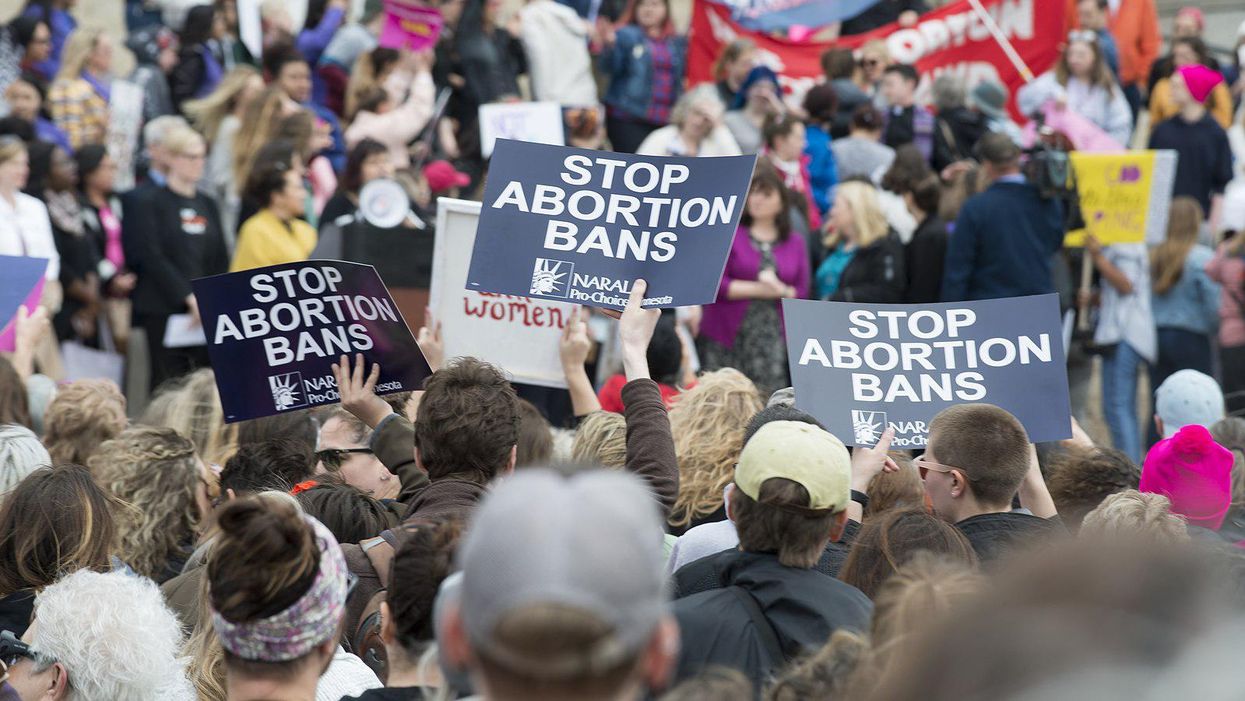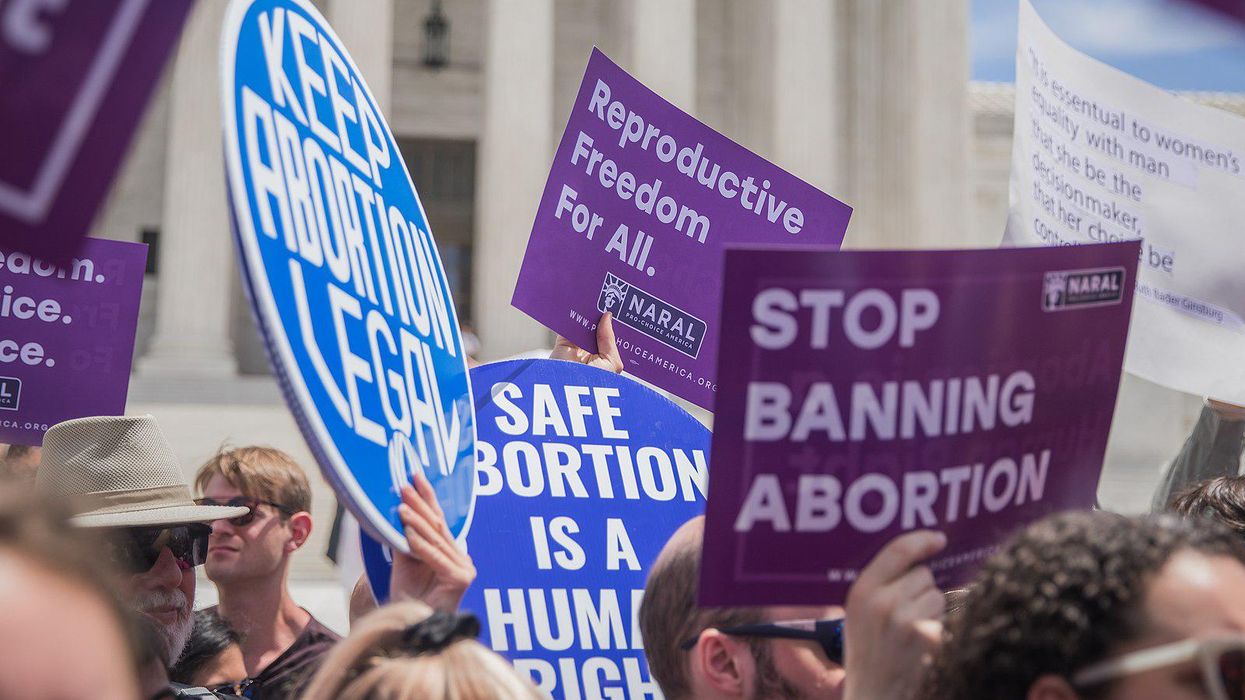The Constitutional Right To Abortion Is About To Disappear
In one of his 19th-century novels, Anthony Trollope depicts a protagonist who learns that his beloved has accepted a rival's marriage proposal. "A horse will gallop for some scores of yards, after his back has been broken, before he knows of his great ruin; — and so it was with Phineas Finn," he wrote. Soon, however, Finn realizes: "The game was played out, and all his victories were as nothing to him."
This is roughly the position of abortion rights supporters in America. But on Monday, the Supreme Court announced that it would review a Mississippi law that bans nearly all abortions after the 15th week of pregnancy.
The case won't be heard before October, and a decision may not come down for more than a year. But the devastating blow has fallen. We now know that the constitutional right that has been recognized for nearly half a century will not survive in its current form, if at all.
The Mississippi law, enacted in 2018, prohibits abortions after 15 weeks, except "in a medical emergency or in the case of a severe fetal abnormality." No exception for rape, incest or nonemergency risks to the health of the mother. The state declares that any abortion performed after this stage "is a barbaric practice, dangerous for the maternal patient, and demeaning to the medical profession."
The law represents a direct challenge to the Supreme Court's own rulings, which allow states to forbid abortions only after the fetus is viable, or capable of surviving outside the womb, about 24 weeks into a pregnancy. The court established that rule in the 1973 Roe v. Wade decision and reaffirmed it in 1992.
Under its existing precedents, the law is flagrantly unconstitutional, as both a district court and an appeals court concluded. Five years ago, the justices declined to review a lower court ruling that threw out an Arkansas ban on abortions after 12 weeks.
What's changed? The Supreme Court, which now has three conservative members appointed by President Donald Trump. There is only one possible explanation for why the court would agree to review the statute: At least five justices are ready to let states outlaw abortion long before viability.
Otherwise, the court would have let the lower court ruling stand. "I'd be absolutely shocked if they didn't intend to uphold the law," University of Chicago law professor Geoffrey Stone, author of Sex and the Constitution, told me.
As he notes, the ban would allow most abortions. Some 90 percent of Mississippi abortions take place in the first 15 weeks of pregnancy. Some of those performed later involve the sort of medical emergencies and fetal defects that are covered by exceptions in this ban. For most women, getting a termination would remain within the realm of possibility.
But these figures are cold comfort for any woman who believes she should not be forced to endure the rigors of pregnancy and the dangers of giving birth, which are vastly greater than the risks of abortion. Poor women are particularly likely to be affected. If this law is upheld, some two dozen states are likely to enact similar measures — if not stricter ones.
If abortions after 15 weeks can be outlawed, why not after 12 weeks? Or 10 weeks? Or zero weeks? Having erased the bright line of viability, the conservative justices will find no obvious place to draw a new one — if they want to draw one at all.
Eleven states, including Mississippi, have passed laws that would ban all abortions as soon as the court overturns Roe v. Wade. They now have a realistic hope that those laws will eventually take effect.
If anti-abortion advocates think such bans would prevent women from ending unwanted pregnancies, though, they are kidding themselves. Many abortions involve taking a couple of pills — which, like other illicit drugs, would find willing sellers in a soon-to-thrive underground market. Women in red states could travel to blue states to find legal clinics.
The truly desperate would seek out illegal providers, some of them unsafe, or even try to self-induce. Each year, thousands of women around the world die from illegal abortions, and millions suffer medical complications. The United States can't expect anything different.
For the time being, abortion remains legal and mostly accessible in this country. But it won't be long before Americans who cherish the right to make their own decisions will know of their great ruin.
Steve Chapman blogs at http://www.chicagotribune.com/news/opinion/chapman. Follow him on Twitter @SteveChapman13 or at https://www.facebook.com/stevechapman13. To find out more about Steve Chapman and read features by other Creators Syndicate writers and cartoonists, visit the Creators Syndicate website at www.creators.com.










